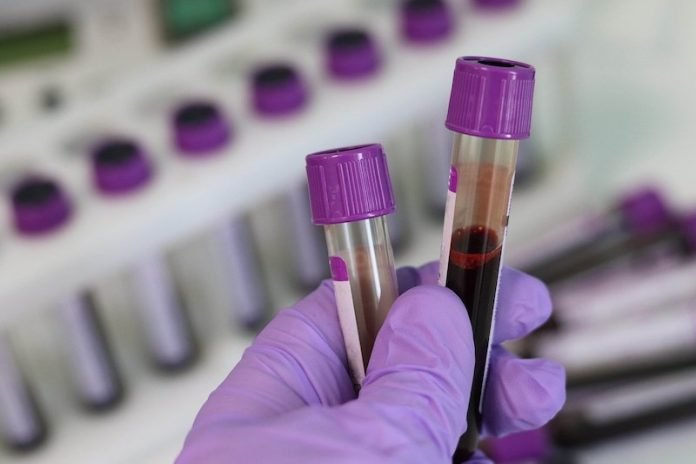
Identification of healthy people at high risk for severe COVID-19 is a global health priority.
In a new study, researchers found a unique molecular signature in the blood that can tell if a person will get severe COVID-19 infection or not.
The research was conducted by scientists at Nightingale Health.
In the study, the team examined whether blood biomarkers measured by high-throughput metabolomics could predict severe pneumonia and COVID-19 hospitalization years after the blood sampling.
They analyzed over 100,000 blood samples from the UK Biobank and identified a particular molecular signature in the blood that’s common among people who get severe symptoms if infected by the coronavirus.
Those with this molecular signature are five to 10 times more likely to be hospitalized.
These findings are novel, as the blood biomarkers in the molecular signature have not been previously known as risk markers in healthy people for developing severe forms of COVID-19.
This is the world’s largest metabolomic study to date and based on the study’s findings the team is soon launching a blood test that can predict if a person will develop mild symptoms or become severely ill due to COVID-19.
The test can, therefore, be used to identify people who’ll need special precautions to avoid infection and prioritize those in most need of the COVID-19 vaccine.
The team says the best way to detect those at high risk is by looking at a molecular signature of multiple biomarkers.
It is striking that the risk identification works well even when focusing on a subset of biomarkers in Nightingale’s blood test that can be captured by self-collection through a finger-prick blood sample.
These novel findings provide a scalable solution for personalized prevention and population-level screening, which can later also be used to prioritize vaccines for those who need it the most.
One author of the study is Dr. Peter Würtz, lead scientist of the study and Scientific Director of Nightingale Health.
The study is published in medRxiv.
Copyright © 2020 Knowridge Science Report. All rights reserved.



